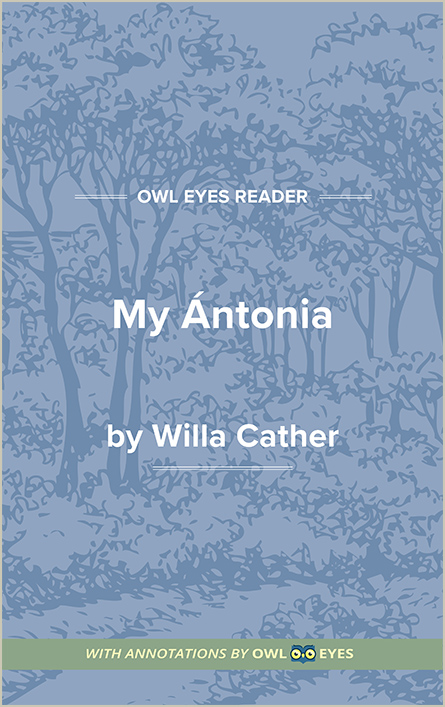Analysis Pages
Vocabulary in My Ántonia
Vocabulary Examples in My Ántonia:
Book I - Chapter V
🔒"trundled..." See in text (Book I - Chapter V)
Book I - Chapter VI
🔒"stag's head on the cock...." See in text (Book I - Chapter VI)
Book I - Chapter XII
🔒"Protestantizing..." See in text (Book I - Chapter XII)
Book I - Chapter XIII
🔒"deferred..." See in text (Book I - Chapter XIII)
Book II - Chapter II
🔒"perfunctory..." See in text (Book II - Chapter II)
Book III - Chapter IV
🔒"amour-propre...." See in text (Book III - Chapter IV)
"noblesse oblige,”..." See in text (Book III - Chapter IV)

